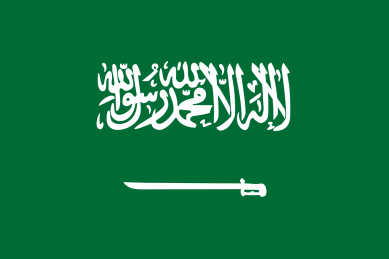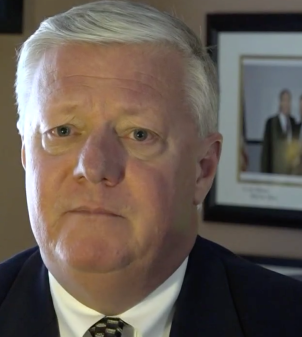 After a 13-year battle that 28Pages.org joined two years ago, 28 pages on Saudi government links to the 9/11 hijackers were finally declassified on Friday. While there are frustratingly many redactions amounting to about three pages of content, the declassified pages contain many new details that should prompt demands for the release of additional documents that would shed further light on those details.
After a 13-year battle that 28Pages.org joined two years ago, 28 pages on Saudi government links to the 9/11 hijackers were finally declassified on Friday. While there are frustratingly many redactions amounting to about three pages of content, the declassified pages contain many new details that should prompt demands for the release of additional documents that would shed further light on those details.
Continuing a pattern that began well before the pages were released, both the Saudi and U.S. governments assert that the 28 pages do not implicate senior Saudi government officials or members of the royal family in facilitating the attacks, and that Saudi Arabia is an important partner in the war on terror. A handful of revelations in the 28 pages undermine both claims.
Direct Payments from Prince Bandar to Hijackers’ Helper
Osama Bassnan was a Saudi citizen who lived in San Diego and boasted to an FBI asset about the assistance he provided to 9/11 hijackers Nawaf al-Hazmi and Khalid al-Midhar. The 28 pages describe Bassnan as an extremist and supporter of Osama Bin Laden who hosted a party for Omar Abdel-Rahman. Also known as “the Blind Sheikh,” Abdel-Rahman is now in prison for his role in the 1993 bombing of the World Trade Center.
It had previously been established that Bassnan’s wife had received a series of cashier’s checks from Princess Haifa, the wife of the Saudi ambassador to the United States and close confidant of President George W. Bush Prince Bandar. Those checks—which the 28 pages say totaled $74,000—were claimed to have been charitable in nature, meant to aid Bassnan’s wife in paying for medical treatments.
Newly revealed in the 28 pages is a direct payment of $15,000 from Bandar to Bassnan in May 1998. The pages also cite a CIA report that indicates Bassnan received a “significant amount of cash” from an unidentified member of the Saudi royal family in a 2002 Houston meeting—seven months after the attacks that killed nearly 3,000 people.
Bandar, Embassy Links to al Qaeda Associate Abu Zubaydah
In March 2002, U.S. and coalition forces in Pakistan captured Abu Zubaydah, an apparent al Qaeda associate who was originally identified as a senior member of the terror organization but whose actual status is now in doubt. The 28 pages reveal that Zubaydah’s phone book contained an unlisted phone number linked to a small Colorado corporation was formed to facilitate the management of Prince Bandar’s spectacular Aspen home.
It also held a phone number of an individual whose name is redacted but who is identified as a bodyguard at the Saudi embassy in Washington. The 28 pages say “The FBI suspects that he may be a [ redacted ]” and that he was being investigated due to “the size and value of this residence and his suspicious activity in approaching U.S. Intelligence Community personnel.”
Suspicions of Saudi Government Money-Laundering
The 28 pages describe FBI suspicions that Saudi money was being laundered through businesses associated with Osama bin Laden, as well as through mosques and charities. Describing one such conduit, the 28 pages read, “According to the former FBI agent in San Diego who was involved in this investigation, this scheme may allow the Saudi government to provide al-Qa’ida with funding through covert or indirect means.”
The 28 pages also say “there are also indication of Saudi government support for terrorist activity through charitable organizations,” including the Saudi-based Umm al-Qura Islamic Charitable Foundation (UQ), which is described as being involved in “suspicious money transfers, document forgery, providing jobs to wanted terrorist suspects, and funding travel for youths to attend jihad training.” According to reports cited in the 28 pages, UQ couriers had transported more than $330,000 in cash, “most of which they received from Saudi embassies in the Far East.”
The American and Saudi governments would have us believe the 9/11 Commission thoroughly investigated these and many other leads before concluding it found no evidence of Saudi government support of al Qaeda. As we’ve explained before, an overwhelming amount of evidence—including statements from 9/11 Commission member John Lehman—undermines the idea that links to Saudi Arabia were thoroughly investigated.
Lack of Saudi Cooperation in Countering Terrorism
The 28 pages undermine the idea that Saudi Arabia’s is a reliable partner for the United States in countering terrorism. A veteran New York FBI agent described the Saudis as having been “useless and obstructionist for years.”
The pages also reveal that, in May 2001, the U.S. intelligence community sought Saudi assistance in finding an individual in Saudi Arabia who was in contact with Zubaydah and who was “most likely aware of an upcoming al-Qa’ida operation.” The Saudi government put conditions on assisting U.S. authorities with the matter and ultimately did not cooperate.
According to the 28 pages, the former chief of the CIA’s bin Laden unit said it was clear to him that, after 1996, the Saudi government would render no aid to the United States in its tracking of the al Qaeda leader. They also refer to a CIA memo that says the Saudis stopped providing information on bin Laden because he had “too much information about official Saudi dealings with Islamic extremists in the 1980s for Riyadh to deliver him into U.S. hands.”
Recommended Additional Reading
Much has been written about the 28 pages since their release; here are a few of the more noteworthy pieces so far.
Brian McGlinchey’s journalism has moved to a Substack newsletter—Stark Realities with Brian McGlinchey: https://starkrealities.substack.com/

